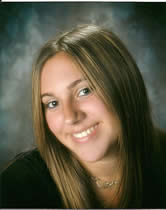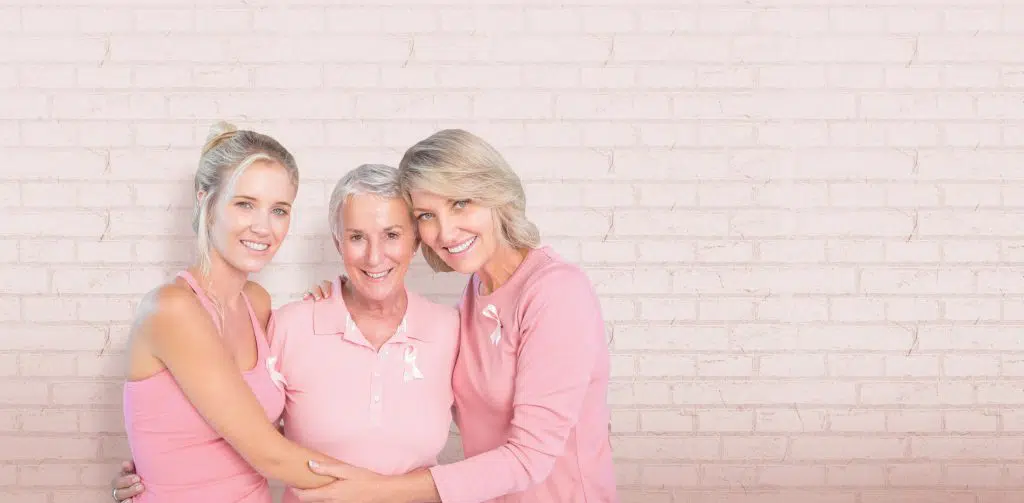Note: The essay below was written for a college application in response to the following question: “With each new experience comes a new discovery about one’s self and the world. Tell us about something you have experienced that may have changed your life or simply led you to a new understanding.”
by Arielle (Last name withheld by request)
Imagine you were offered a crystal ball in which you could see your future. Imagine if it could predict whether you were going to have a serious disease. Would you look? In a few years I might take a look, but I’m not sure I want to know what the ball might reveal.
You see, I’ve had a life-altering experience, but it isn’t something that has directly happened to me—at least not yet. It’s an experience that my mom, grandmother, aunt, great aunt, and second and third cousins have gone through. They have all tested positive for the BRCA gene mutation, and they have all been diagnosed with and treated for breast cancer. When I turn 18, I can decide whether or not I want to have BRCA testing. Whether the result is positive or negative, I’ll always be a part of a family that has had to deal with hereditary cancer. One day, I may face my own diagnosis.

So, why write about this in my college application essay? Clearly, I am not the only daughter who has had to watch her mother go through breast cancer surgery and chemotherapy. I know that you know it’s devastating for a child to experience. I decided to write about my family’s genetic background, however, because it has led me to a new understanding that sets me apart from my peers.
My mom’s cancer was diagnosed two and a half years ago. She often says it was a relief to finally get the news she was waiting for and to then move forward. My memory of her cancer year is actually a positive one. Through her optimistic attitude, she taught me that breast cancer wasn’t the worst thing that could happen. Although it was frightening for me to watch her go through treatment, her courage comforted me. She never denied the seriousness of her disease, but she never got angry. During that year, I tried to block out my sad feelings. I preferred not to think about them. But now, a few years later, I’m beginning to see that ignoring my fears doesn’t take away my risk. The lesson I continue to take from my mom’s cancer and our family’s predisposition to it is that none of us are invincible.
My friends are so excited about going off to college to live on their own for the first time. They will not have to rely on their parents to make decisions about what to eat, when to study, and what they can and can’t do. My friends, however, don’t seem to pay attention to their future health. For most people my age, cancer is the furthest thing from their minds, but not for me. I can’t deny that I might face cancer one day.
My mom used to say that living with cancer risk was like having a dark cloud walk along with her at all times. My cloud might appear in that crystal ball. I’m pretty sure that someday though, I’ll have the strength to take a look.
Arielle lives in a suburb of DC with her mom and dad, brother Ethan and dog Jozu. Her mother, Lauren, wrote “Ending a Legacy of Silence” in the Summer 2005 issue of Joining FORCEs. In August, Arielle joined the Penn State University Class of 2011.
Commentary
by Rebekah Hamilton PhD, RN
Young women who know they may carry one of the BRCA mutations tend to face life differently, with a seriousness and appreciation uncommon in their peers. Heading off to college, for example, Arielle will take with her a crystal ball very few, if any, of her fellow students have.
When a young woman is trying to decide if she wants to have the BRCA mutation test she has many things to consider: What will she do if she has a mutation? Should she see a genetic counselor or have her blood drawn by her primary care physician? Will her health insurance—if she even has insurance—cover the cost of testing? Does she want her insurance company to know her test results? Does she have life insurance—“I’m 21! Who needs life insurance”? How does she discuss this issue with her boyfriend? How does she explain this to her girlfriends and will any of them really “get it”?
For Arielle and other young women who may have inherited a BRCA mutation, being tested is only the first of many difficult decisions. If they are found to have a BRCA mutation, their choices become complex and potentially lifealtering. In my research with young women with BRCA mutations, for example, I have spoken with 24-year-olds about their struggle to decide whether to have a prophylactic mastectomy. How does one balance the dread of developing breast cancer with the incredibly personal choice of having body-altering surgery? If a woman considers prophylactic mastectomy to be the right choice, does she want to consider breast reconstruction, and, if so, which of the various procedures might be best for her? While breast surgery decisions are difficult, reproductive choices present a complexity unique to young women. Current standards recommend young women with BRCA mutations have a prophylactic oophorectomy at age 35 or when they are done having children. For women who want no more children, choosing a prophylactic oophorectomy may not be too difficult, but they still must deal with the early-onset of menopause brought on by the prophylactic surgery. How does an unmarried, 27-year-old who is dating deal with this sense of compressed time? How do 18-25-yearolds who haven’t even considered marriage and children react to such recommendations? One 24-year-old research participant burst into tears when her physician told her she needed to “hurry up and have babies.”
The sense of compressed time and of being “out of sync” with one’s peers is evident in this young population. Many young women find that a community of peers, such as FORCE, helps to ease their sense of isolation. Almost all of the young women I have interviewed consider themselves lucky to know if they are at increased risk for breast and/or ovarian cancer, while their grandmothers, mothers, and aunts generally could not. However, it does seem this luck requires much from our young women: many decisions, many physician visits, many medical interventions, but most of all, much courage. Remarkably, the young women I have spoken with have that in abundance.
